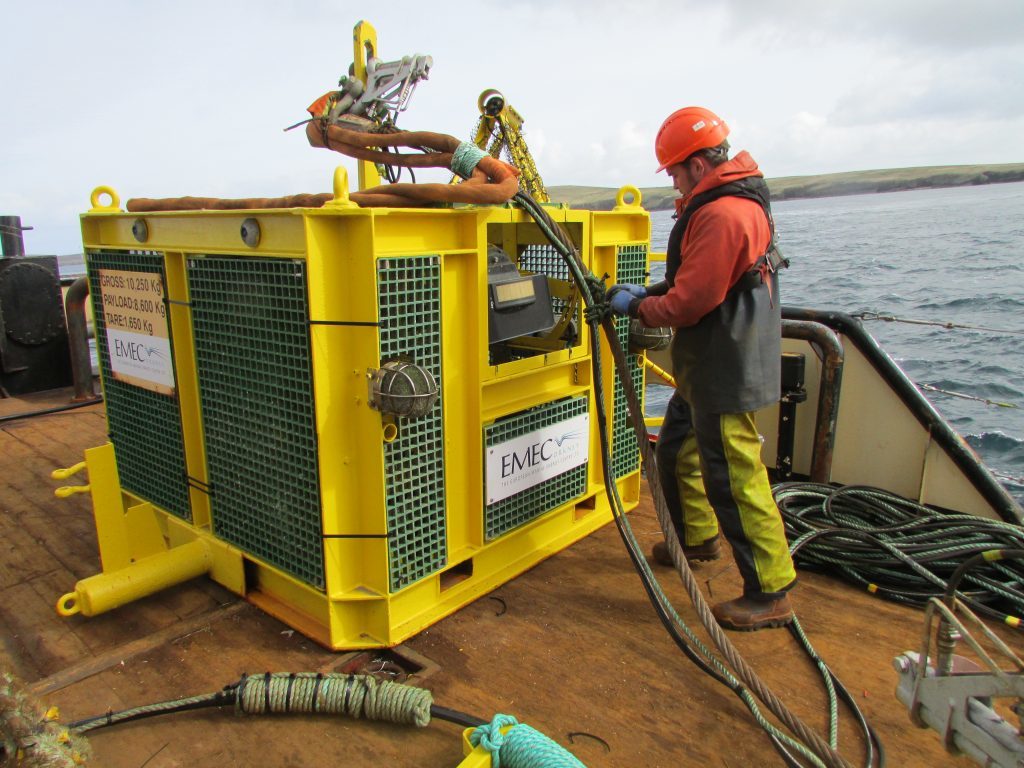
The European Marine Energy Centre (EMEC) in Orkney is looking at how turbulence impacts on tidal energy devices.
The centre has redeployed its bespoke Integrated Monitoring Pod, fitted with innovative turbulence instruments to help with measurements.
The pod has been fitted with a MicroRider turbulence system designed by Rockland Scientific, a Canadian company specialising in marine turbulence.
The sensor system combines standard flow measurement technology – acoustic and electro-magnetic- with novel non-acoustic measurement technology -shear probes.
Aiming to improve the industry’s understanding of turbulence, the project will enable tidal energy developers to optimise design so that technologies can withstand the effects of strong tides and currents.
Led by Rockland Scientific, the InSTREAM project brings together UK-based FloWave TT, Ocean Array Systems and EMEC, and Canadian companies Dalhousie University and Black Rock Tidal Power.
Peter Stern, vice president of engineering at Rockland Scientific, said: “The flow through tidal passages is, by nature, extremely turbulent and this flow speed variability affects the reliability and efficiency of tidal stream turbines.
“Accurate measurement and numerical modelling of turbulence is therefore vital for designing and deploying tidal technology, as well as assessing the risk and cost of operations.
“The results from this applied research project will address technical challenges that ultimately reduce uncertainties in site design, yield assessments, and device design, reducing operational and economic risk”.
The project is being carried out in both UK and Canadian waters – at EMEC, and at FORCE in Nova Scotia, Canada.
Tests have already been completed at the University of Edinburgh’s FloWave Ocean Energy Research Facility which can replicate tidal characteristics found at EMEC’s Fall of Warness tidal test site in Orkney where the Pod has been deployed. The site experiences tides of up to 4m/s, or eight knots, at peak tide.
Recommended for you
